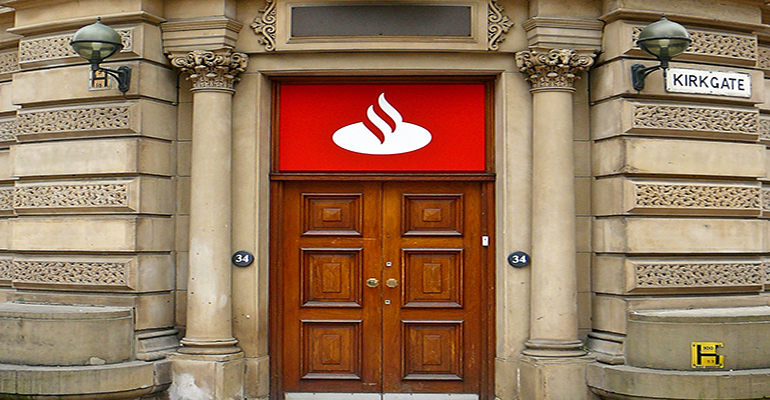After recently raising Spain’s sovereign ratings to ‘BBB+’ from ‘BBB’, S&P has also improved its stance on some of the country’s top banks. S&P’s upgrades comes in the same week as the Madrid local authorities said they could not renew the contracts with that agency.
Santander received the best marks from S&P, seeing its rating raised slightly above that of the Kingdom of Spain to ‘A-‘ from a previous ‘BBB+’, with a good (medium-high) investment grade assigned to its debt.
The ratings agency said there is “a significant probability” that Santander would not “fail” as a result of a hypothetical default of Spain’s sovereign debt. “In such a scenario, Santander would have to face considerable deficiencies, but without seeing its capital base completely eroded.”
S&P also improved its ratings for Spain’s second biggest bank BBVA to ‘BBB+’ from ‘BBB’, while reaffirming its ‘BBB’ stance for both Caixabank and Cecabank and ‘BB’ for Ibercaja.
Last Friday, S&P said its decision to raise its rating on Spain’s sovereign debt to ‘BBB+’, with a “stable” outlook, is due to the positive impact of the country’s two labour market reforms on the economy since 2010. As a result of these reforms, Spain’s export and services sector have boosted their competitiveness. Improved financial conditions also influenced the rating agency’s rating.
S&P’s upgrade on Spain’s two big banks comes in the same week as the Madrid local authorities said they are considering not renewing the contracts they have with that agency and with its peer Fitch. Both contracts finish in December. The authorities said they do not plan to issue any more debt, but to meet the payments due on that.
A few days later, S&P raised its rating on the city of Madrid, but with a negative outlook. It cited the fact that the audit of the debt advocated by the local government could have negative consequences for the city in a period of 18 to 24 months.





